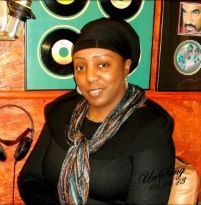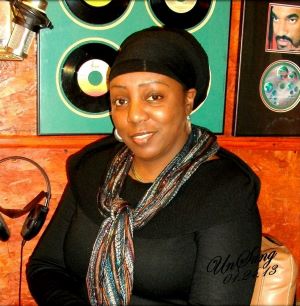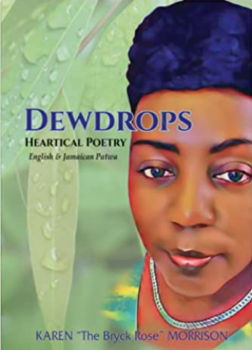Karen Morrison Promotes Use Of Patois In Literature


by Howard Campbell
Self-produced, it was launched in New York on October 16. The book contains 52 poems, 18 of them in patois.
“It was extremely important for me to make some of these poems Jamaican to have a closer reach of heart to my people and to engage the foreigner who has already fallen in love with the culture and those that are curious about it,” said Morrison. “I know that many Jamaicans as well as other Caribbean brothers and sisters can and will relate to many of the topics in the book.”
The Inspiration
Many of the poems in ‘Dewdrops’ were inspired by actual events Morrison saw while living in Jamaica. Those include Sumadi Son, about the crude public transportation system there.
That piece is in patois, an hybrid of rural and urban slangs that was considered backward by academics and colonialists until the 1940s when folklorist Louise “Miss Lou” Bennett championed its use in Jamaican theater and literature.
Patois eventually found its way into pop culture through films like The Harder They Come, roots-reggae and dancehall music.
The poems in ‘Dewdrops’ cover different themes. Time, Weh Yuh A Guh (Time, Where are you Going) looks at the fast pace of life while Why Did You Go addresses suicide.
Because patois is, arguably, the most difficult of the Caribbean tongues to decipher, Morrison includes a ‘dictionary’ in her book.
“Foreigners who love Jamaican culture should not find it to be such a hard read, especially with the assistance of the glossary. I think they will have fun with it. There is a lot of humor in the book. I wrote it the way it came out of my spirit. This is my contribution to my people and culture,” she said.
While she has always loved poetry, Karen Morrison started her career in the 1990s as a singer known as K-Vibes. She performed throughout New York City’s boroughs with stalwart sound systems such as Downbeat The Ruler and recorded for the legendary Studio One label.




